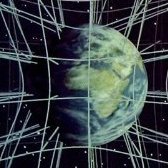Leaderboard
Popular Content
Showing content with the highest reputation on 03/16/21 in all areas
-
Dear All, I am going to take a hiatus from the forum from today. As some of you might know, the natural sciences are not my only area of interest; in particular, I am committed to a form of spiritual practice as well, and have been living in a Buddhist monastery as a lay person for the past few years. I have made the decision to deepen this practice further by ordaining as a monk in the Theravadin Thai Forest tradition, and for various logistical and monastic-political reasons this should ideally happen at a traditional training monastery in Thailand. So tomorrow I will be departing for Thailand to seek ordination there. I think it doesn’t need pointing out that forest monks generally don’t spend a lot of time on Internet forums, so chances are that I will only get to check in here very occasionally, if at all. That being said, there are a lot of question marks and uncertainties, particular in terms of immigration formalities, so it is possible that I need to come back here to Europe in a few weeks once my initial entry permit runs out, and make alternative arrangements from here (meaning I’ll have to find another place to ordain). I will only know once I get to the monastery and start dealing with the local immigration authorities (I see frustration and nightmares on the horizon!), but I’m willing to take that risk. I have been debating whether it is useful to present my reasons for going this path - you have seen me here being on about physics and equations all the time, so this might appear strange to some of you. But I’ve decided not to, because when it comes down to it, I can’t really present a convincing rational argument - this decision simply didn’t come about as the result of reason. I will say only that I’ve seen and understood enough in the spiritual practice that I have already done in the last few years, to know that this is the right path for me. The argument is a phenomenological one, not the result of rationality, so it cannot be easily conveyed in a written post. Spirituality ultimately expresses itself in the kind of person you become by engaging in it, and that’s not something you can fake or wear as a mask. You also cannot reason yourself into the monastic life - that is far too weak a basis for anyone to be at peace with that form of life, never even mind to be able to derive any benefit from it. It needs to be a true conviction that arises somewhere deep within, and that cannot be verbally communicated to others. I will add here that for me there has never been any contradiction between scientific endeavours, spiritual practice, and philosophical enquiry. Not only is there no contradiction, for me these are just aspects of the same underlying motivation to better understand the human condition; hence, if engaged with in the right way, they are complementary and inform each other. I have always felt strongly that it is necessary to achieve some kind of synthesis of these three things for us as a species to make any kind of real long-term progress, since each one in isolation can be misused for harmful and even destructive purposes, as history has sadly shown us all too often. So anyway, thank you everyone for sharing in these discussions, and I hope I have been able to make some kind of contribution - no matter how small - to this forum. In case I’m not back here for a while, I wish all of you the very best, and hopefully we’ll cross paths again. Keep my account open, just in case10 points
-
https://www.facebook.com/lynnmiclea.author https://www.facebook.com/lynnmiclea.author2 points
-
Yes, and we moved forward from there. We know a lot more now than we used to, so we won’t be going back to 1963. Yes. And we can do much more than that - we can even probe the internal structure of the protons and neutrons themselves, and thus directly test the quark model. In particle physics we do not speak of “certainties”, but instead deal with a quantity called statistical significance. This essentially tells us the degree by which, given a sufficiently large statistical data set, an event is likely to be “real” (as opposed to being a statistical fluke of some kind). As for neutrinos, yes, we know these things with a very high degree of statistical confidence, way beyond the required threshold value. Note that the three neutrino flavours and their oscillations have little to do with mass, other than the fact that they need to have a non-vanishing rest mass in order to oscillate at all. The various known fundamental particles have been found - and continue to be probed - with a large variety of different methods. I’m not sure what this has to do with protons, specifically. Sure. Some examples that immediately spring to mind would be nuclear reactors, diagnostic equipment such as PET and MRI, quantum computers, and many more. Even your smartphone is likely to contain components that directly rely on some aspect of particle physics in order to function correctly. Also, the chemical properties of all the various elements are a direct result of particle physics and its laws. Pair production is a simple consequence of quantum field theory, along with the usual conservation laws. There is little mystery here - you can even deduce some of the basic kinematics at play using semi-classical methods. That’s because, energy levels being equal, what we call a proton is a composite quark-gluon system, whereas an electron is an elementary particle. You can read up about quantum chromodynamics, if you want to know more details. Yes, which is precisely what General Relativity tells us will happen once certain conditions are present. Not so! There is a lot we don’t know yet, and yes, there are some obvious shortfalls and problems in some of our models. Physics would be a very boring discipline if that were not so - these issues are what provide the impetus to do further research, and continuously develop new models, so this is a very positive thing. At the same time though, there is an awful lot we already know at confidence levels that are so high that for all intents and purposes they can be considered near-certainties. We have much more powerful and sensitive instruments at our disposal compared to 1963, so we are able to probe far deeper into the structures of reality. The quark model wasn’t fully developed and experimentally tested until the 1970s, so your textbook is missing a huge piece of the puzzle.2 points
-
1 point
-
That is basically true. The development itself did not start from zero but was prioritized so it was faster because more folks worked on it. Phase III are smaller and faster than some other vaccine trials but it benefitted from an actual bad situation: the virus was spreading rapidly and had in many countries a high prevalence. So while other vaccines might have taken years to identify enough infected folks to estimate efficacy, in the pandemic the numbers were reached much faster. Production is not an issue as it is regulated and controlled the same way as others. It is fast because more companies work together to make it happen. If you are talking about development and testing, Area54 basically addressed that. If you are surprised that things happen faster because more folks and more money was dedicated to the project then I am not sure what to tell you. Would you feel better if they waited until you think it took enough time?1 point
-
No, the situation is not symmetric. You need time to have time perception but you don’t need time perception to have time.1 point
-
It’s literally my job to measure time independent of time perception. I would agree that you cannot so easily disentangle time perception from time.1 point
-
No it is not. The first sentence of the article clearly demonstrates this. The relevant words are highlighted. Human awareness of time is not time. Human perceptions of time are not time. Case closed.1 point
-
Politics is perception. If people think the vaccine caused it, an emotional response, a whole lot of them won’t be swayed by statistics and statements. So halting the rollout looks like protecting people. And as gordief notes, you don’t want people to have an excuse to not get vaccinated. A delay to “assess” things might be the assurance some people need.1 point
-
https://www.cnbc.com/2021/03/16/astrazeneca-covid-vaccine-doctors-react-as-eu-countries-suspend-shot.html This is out of 17 million people DVT is normally about 1 in 1000 per year https://www.stoptheclot.org/the_basics/how_common_dvt/ Seems like this is likely the post hoc ergo propter hoc fallacy1 point
-
So... the guy who thinks profs are arses is not treated with respect by profs. The other people are treated with respect. I wonder if those observations are related.1 point
-
I'm a tenure track professor. I usually get somewhere between 50 and 100 emails a day. I allocate about 45 mins twice a day to responding to them. I sort them by importance, then I answer in order until the time is up. Then I delete the rest. Emails go unanswered every day because I could literally spend the entirety of every single day responding to them, and I have teaching, research and administration to do. I tell my students that if it's important, send it again and tag it as important, or if it's important AND urgent, bang on my office door or call my phone.1 point
-
! Moderator Note I’m not sure which infraction is worse: appealing to conspiracy, linking to other discussion boards as “evidence” or labeling all “footnote” links with the number 1. What I am sure of is this thread is closed.1 point
-
1 point
-
1 point
-
You need to have a high enough progesterone level to match that in the salamander's blood. Perhaps the progesterone level is not high enough, perhaps it is a completely different compound, I would not know. A quick blood test on the salamander's blood should do it.-1 points







